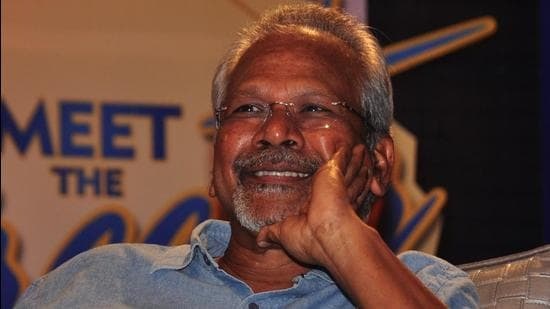Mani Ratnam: I would want to change something in all my films if given a chance today

- Rishabh Suri
Hindustan Times
Last Updated: 09.55 PM, Aug 25, 2021
Mani Ratnam’s filmography boasts of classics such as Dil Se… (1998), Roja (1992) and Bombay (1995), all critically acclaimed and rooted in real life. While the world accords cult status to his films, the filmmaker himself feels that he “would want to change” something in “all my films”, if given a chance today.
“When I’m making a project, or anyone for that matter, we go into details, close to the pixels. You’re not objective then, you’re only subjective. You need to have a certain amount of distance to be able to assess, and that comes only with time,” he expresses.
But given the political situation and the changing times, one wonders how easy or difficult would it be to make these films today. Ask Ratnam would he take the chance and revisit his own body of work, and he says he doesn’t know whether he can make a “blanket statement or not”.
He elaborates, “I think some films will have difficulty. You’ve to know that’s what it’s going to be, you’ve to work around it and still be honest to what you want to say,” he says, and adds, “The only way I looked at it, is doing what I really believe in. If there’s nothing wrong in what you’re saying, you go ahead and make it with conviction, and hope that’ll come through.”
On whether he feels that as a filmmaker he is at ease and has the liberty to explore any subject he wants today, Ratnam says it was the same even before, when he started off making films.
“It’s no different from then. Even in those days, some subjects would be a bit of a problem. There are people who faced these problems before I started making films. Constraints are there, you try to maximise within them and see whether you manage to take one step forward, and keep trying, not give up so easily,” says Ratnam, 65, who’s currently busy with his next, the Tamil film Ponniyin Selvan starring Vikram and Aishwarya Rai Bachchan.
And while making films based on real life topics is difficult, he, in fact, shuts down people who feel masala films are easier to make in that sense, when compared to the trouble that real stories invite.
Explaining his point, he adds, “You need a certain amount of talent to do that (make masala films), and pull it off well. If you’re comfortable and that’s the way you want to say it, that’s the reason why you make films. The reason is you want to tell stories and do it in a particular way. You try different themes within that, and get better each time. It’s a struggle, nothing is easy.

 Premium
Premium